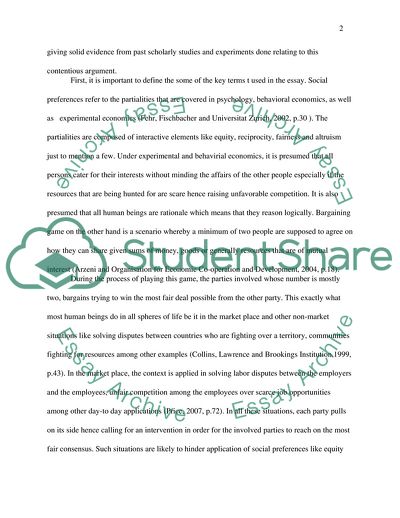Cite this document
(Does competition affect social preferences in the context of a Essay - 1, n.d.)
Does competition affect social preferences in the context of a Essay - 1. https://studentshare.org/macro-microeconomics/1813882-does-competition-affect-social-preferences-in-the-context-of-a-bargaining-game-discuss
Does competition affect social preferences in the context of a Essay - 1. https://studentshare.org/macro-microeconomics/1813882-does-competition-affect-social-preferences-in-the-context-of-a-bargaining-game-discuss
(Does Competition Affect Social Preferences in the Context of a Essay - 1)
Does Competition Affect Social Preferences in the Context of a Essay - 1. https://studentshare.org/macro-microeconomics/1813882-does-competition-affect-social-preferences-in-the-context-of-a-bargaining-game-discuss.
Does Competition Affect Social Preferences in the Context of a Essay - 1. https://studentshare.org/macro-microeconomics/1813882-does-competition-affect-social-preferences-in-the-context-of-a-bargaining-game-discuss.
“Does Competition Affect Social Preferences in the Context of a Essay - 1”. https://studentshare.org/macro-microeconomics/1813882-does-competition-affect-social-preferences-in-the-context-of-a-bargaining-game-discuss.


